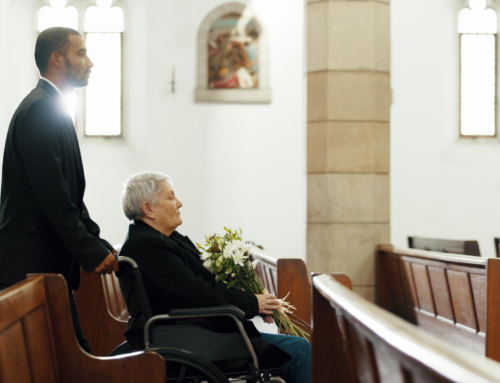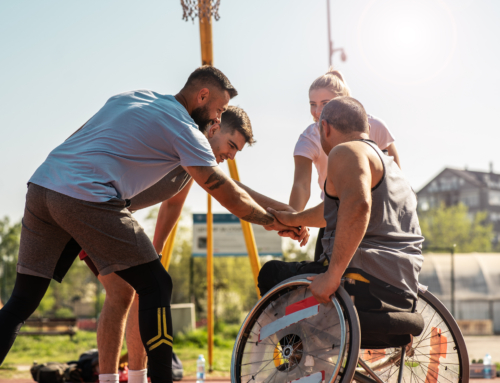
Recently I took a man that I support to have an MRI taken of his brain in an attempt to explain a recent increase in seizure activity. He has a significant developmental disability and does not use verbal language.
I did everything I could to prepare him for the experience. I explained to him what was going to happen and why, that he would have to lie down and go into a narrow tube, that the tube would make loud noises, that it might be frightening and disorienting, but that it would not hurt. I told him the story of the MRI machine, as far as I understood it. He listened to me, accepted the story calmly.
But then the evening came when we had to drive down to the hospital. Suddenly he had to undress in a strange place, to lie down in a strange uncomfortable bed, to have a harness placed on him to hold his arms close to his chest and hold his head still. Suddenly it was time to go into the tube.
He began to struggle and cry out in fear and confusion. I don’t know if our preparation had helped at all, but when the time came, when he had to go into that strange place, when the machine began to speak in its strange magnetic tongue, he was afraid. He cried, and tried to get out. He was alone in a place he did not understand. He did not know what was happening to him.
The technicians had very kindly broken the rules and allowed me to stay with him in the room, but I was still outside of the tube. I had the freedom of my limbs. The noises the machine made were not inches from my ears. I called encouraging words to him inside the tube, but they were just more sounds.
So I did the only thing I could think to do. I wrapped my arms around his legs where they protruded from the machine, and I lay my head on his knees, and I held on to him as tight as I could. This seemed to help, a little. He knew now that there was someone there, if not inside of the machine with him, sharing his fear and his confusion, then at least as physically near as they could get. He knew that he was not alone. He grew calmer, calm enough to get through the test, still enough for the machine to do its work and get the necessary images.
So much of the work of direct support is like this. We are outside of the machine, sitting comfortably by, clothed in health and comfort and privilege, offering consolation that can’t be comprehended to suffering we can’t comprehend. I can’t count how many times I’ve thought to myself, “Why am I here? Just to witness this? Why was I called here if there’s nothing I can give this person?”
This is when presence becomes an act of faith. So often, there is nothing we can do except be there, physically present, a fellow body in a shared space. But we must believe that that is more than it seems, that to be there to hold the person’s hand, or legs, or merely to sit in the corner of the room and watch with them until the night is passed, is enough.
It will never seem like enough, but if we believe that we are where we are meant to be, then we must also believe that what we have to give that person is at least a piece of what they need, even if all we have to give is our presence. Because one day it will be our turn to be inside the machine, and all those who love us will be able to give us is their presence, and we must in turn believe that this will be, somehow, enough.


